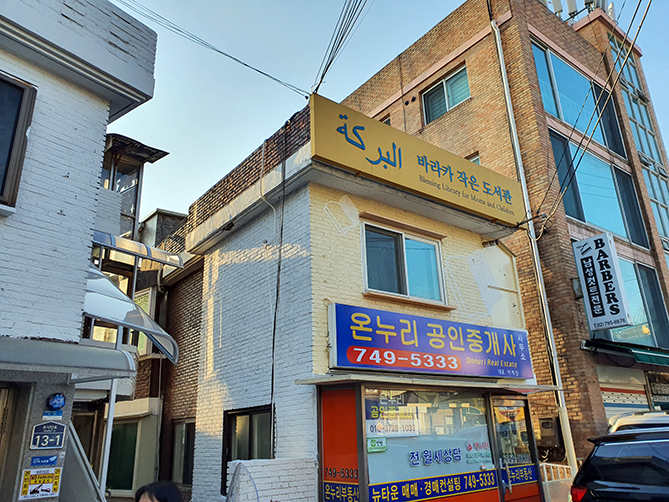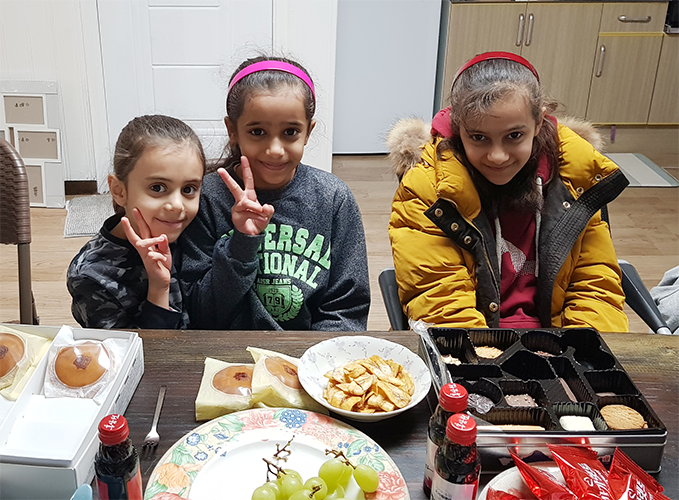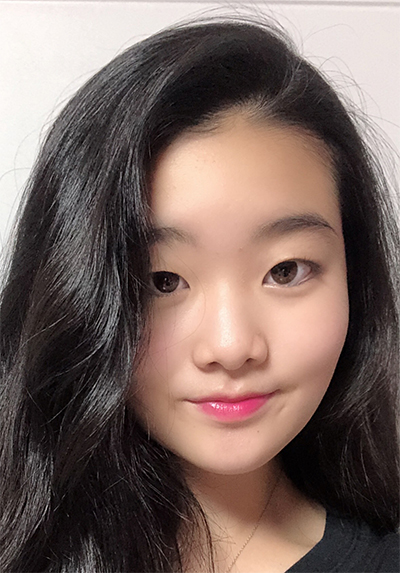Korea has become a salad bowl: cultural pluralism is now very much a “real thing” in Korean society. As immigrants face challenges to assimilate into Korean society, many service centers and facilities are available to help them along. Among them, I visited the Baraka Little Library, which is home to immigrants who have diverse colors of skin, cultures, and languages to settle in our society. It not only carries out meaningful activities to help newcomers but also provides them opportunities to experience Korea.
Baraka means “blessing” in Arabic. As its name suggests, the library supports mothers, children, and women of Muslim immigrant families who seek a new life in Korea. In a small two-story building located in Itaewon, Seoul, I met the Kims, the couple who has led the center since July 2018. After the couple realized that it was especially difficult for women from Muslim cultures to adjust to Korean society, they established the Baraka Little Library to provide the immigrants with educational services. On behalf of women from Islamic countries who have children and are unfamiliar with the Korean language and are uncomfortable meeting strangers due to strict cultural rules that separate the genders, the programs not only help children to keep up with school curriculums but also support them in pursuing areas of personal interests. For example, the programs allow children to learn Korean, English, computer skills, art, or music.

The Kims expressed gratitude to the volunteers who donate various talents in the languages, music, art, and so on, and are continuing to recruit volunteers in order to widen their areas of activities. For instance, they recently started a program to train professional baristas and are also planning to provide learning opportunities related to fields such as nail art and cosmetic beauty.
When asked about the most rewarding time, the Kims said, “Muslim mothers of multicultural families not only don't have fluency in Korean but also are extremely unwilling to meet many people due to their culture. So on behalf of the mothers, we have been enrolling children in school, participating in consultations and school activities. The children became noticeably brighter as we filled in parts that were difficult without a parent at school; seeing their smiles makes me the happiest!".
The Kims also stressed the struggles multicultural children have to go through in school: “Korean schools do not have Korean language programs for immigrants who have to enter schools without having learned any Korean in advance. Thus, not only do they fall behind academically, but also cannot make friends due to their lack of language fluency. This is a huge problem for elementary school students who weigh their friendship significantly." I met a family from Yemen with five daughters who immigrated to Korea two years ago. The eldest, Noor (13, female), gloomily shook her head when asked if she had any friends at school. The sisters said they mostly hang out with each other.

At the end of the interview, the Kims said that they wanted lots of people to show caring to the immigrants. They are hopeful that the immigrants will get assimilated into Korean society and successfully act as a bridge between their home countries and Korea.

Julia (Eunseo) Lee
Junior (Grade 11)
Chadwick International School

